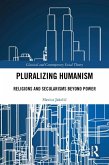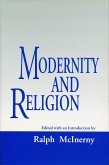Explores the sense in which secrecy is a condition for social relations The Snowden Affair, Wikileaks, the 'lone wolf' terrorist, Clinton's private email account - the question of the secret is one of the central elements, and arguably the central element, of our contemporary political experience. And yet very few have explored this question in a fundamentally philosophical manner. Organized as a reflection on Jacques Derrida's later writings on secrecy, Charles Barbour looks at the basic ontological question 'what is a secret?' He does so in four chapters, each of which engages with a separate problematic - society and the oath, literature and testimony, philosophy and deception, and time and death. He shows that secrecy is not a negation of our relations with others, but a necessary condition of those relations, or that we can only reveal ourselves to one another, and indeed to anything other, insofar as we conceal as well. Charles Barbour is Senior Lecturer in Philosophy at the Western Sydney University.
Hinweis: Dieser Artikel kann nur an eine deutsche Lieferadresse ausgeliefert werden.
Hinweis: Dieser Artikel kann nur an eine deutsche Lieferadresse ausgeliefert werden.








